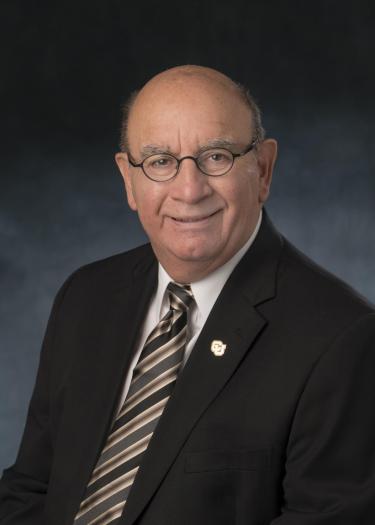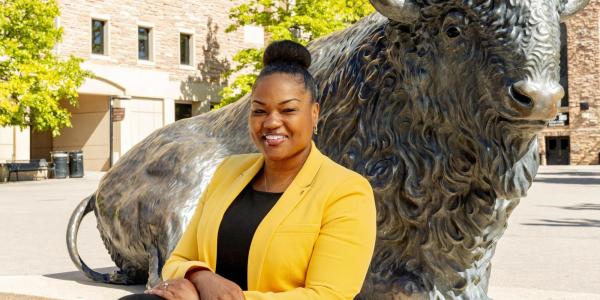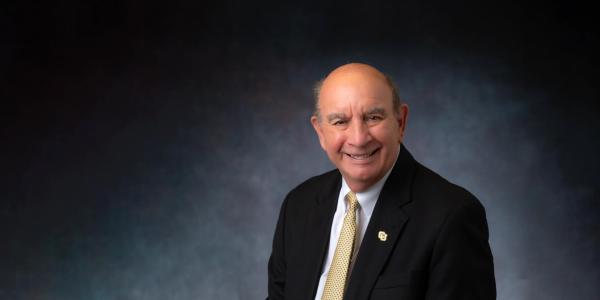
Chancellor Philip P. DiStefano
February is Black History Month, and I think of our outstanding African American pioneers at CU Boulder.
The Spring 2018 Diversity and Inclusion Summit and the Inclusive Sports Summit this week are good times to remember our university pioneers. The struggles and accomplishments of our trailblazers serve as both reminder and inspiration of the work we still need to do.
Lucile Berkeley Buchanan, the daughter of former slaves, was the first African American woman to graduate from CU. That was in 1918. Regrettably, the university did not allow Ms. Buchanan the right to walk across the stage with her classmates to accept her diploma. She sat proudly in Macky Auditorium waiting for her name to be called, but it never was, even though she had completed her studies with honors. She went on to teach in Kansas City, Missouri, and Chicago public schools—a lifelong educator and a role model for generations of students.
This year, we will recognize Lucile Buchanan on the 100th anniversary of her graduation at spring commencement on May 10—an honor that is long overdue. Today, there is an endowed scholarship in her name that has been established through the generosity of faculty, alumni and friends. So far, eight students have been beneficiaries of the scholarship in her name since 2010.
A Buchanan biography by Polly McLean, a CU Boulder media studies associate professor, is due out this spring.
The first African American to graduate from CU was Charles Durham Campbell, from Georgetown. He earned his bachelor’s degree in math in 1912. He served in World War I and went on to become a research mineralogist in Denver.
Many African American students, faculty and staff have helped write CU’s history over the decades.
- 19th-century law student Franklin Laveale Anderson
- 1930s world-record high jumper Gil Cruter
- 1940s activists Harry Groves, Mable Wheeler and Lucile Hawkins
- 1947 Canebearer Tony Ray
- Our first Olympian, David Bolen (1948), who went on to become U.S. ambassador to four countries
- Charles Nilon, our first black professor (1956)
- 1960s activist JoKatherine Holliman
- 1962 Homecoming Queen Mary Mothershed Pryor
- 1950s and ’60s football players Frank Clarke, John Wooten, Bill Collins, Wilmer Cooks and Bill Harris
- Basketball players Billy Lewis and Milt Branch
- 1968 law graduate and Boulder Mayor Penfield Tate II
- School system administrator Thelma Spencer (1972)
- And many others
Many of these leaders are referenced in Glory Colorado!: A History of the University of Colorado.
African Americans were among our first veteran-students. Education for African Americans at CU was interrupted by World War I, and they returned to earn their degrees in the 1920s. This included Alexander Brickler, who returned from the war to graduate in 1922.
Ruth Cave Flowers completed her credits for graduation at Boulder Prep School but was not awarded a high school degree. CU President George Norlin, emphasizing that CU was open to all who qualified, admitted Flowers, who graduated from CU in 1924. Unlike Buchanan, she was allowed to walk at graduation and went on to work as a teacher, lawyer and professor in Washington, D.C., and North Carolina before returning to teach in the Boulder Valley School District. Her son, Sonny Flowers, earned his bachelor’s and law degrees from CU and was a 1960s champion for campus diversity. Today, he is a Boulder attorney.
Another leader was discus-thrower Claude Walton, CU’s first African American student-athlete in 1936 and our first All-American. More than eight decades ago, he came to a largely segregated Boulder, where he was not allowed to dine in a restaurant. He endured segregation, and his patient demeanor helped pave the path for those who followed. One of our greatest and most influential student-athletes, Mr. Walton was inducted into the CU Athletic Hall of Fame at the age of 95.
Delores Ruth Hale Finley arrived as a student three years after Mr. Walton, and, in 1943, she was instrumental in desegregating University Hill restaurants. She has counted her involvement as one of her proudest moments. She also went on to teach in Kansas City, Missouri, before returning to Denver to become the dean of girls at Cole Junior High.
When Mary Frances Berry was appointed chancellor in 1976, she became the first black woman to head a major research university. In her short time here (she left to serve as assistant secretary of the Department of Health, Education and Welfare), she committed us to a path toward diversity we continue to follow in recruiting faculty and students. Over the last several years, we have enrolled the most diverse freshman classes in our history. Chancellor Berry went on to become chair of the U.S. Civil Rights Commission.
Our African American pioneers at CU were innovative and outstanding leaders who impacted society as teachers, veterans, athletes, attorneys, scientists, scholars and desegregationists. Their accomplishments and persistence still impact the campus today.
Our past holds lessons for our future. As a society and a campus we still need to work to ensure that all people are treated equally and that work continues today.
Philip P. DiStefano,
Chancellor



